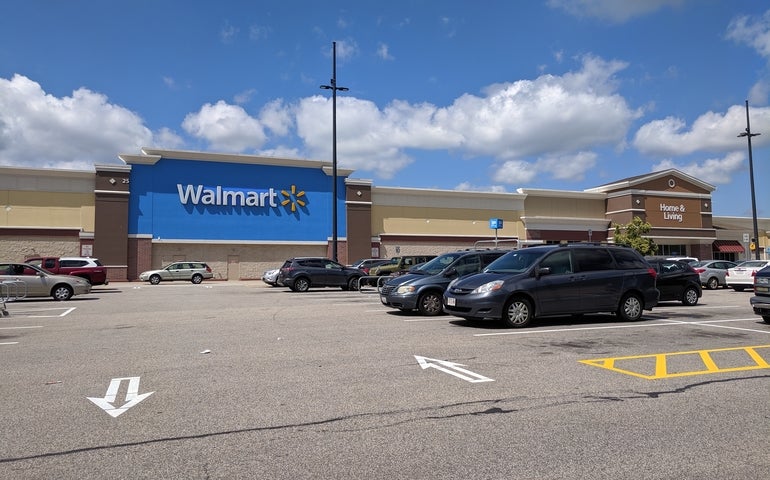The state’s highest court ruled Tuesday that Attorney General Maura Healey was correct to certify a proposed ballot question allowing more stores to sell beer and wine, clearing the way for the issue to go before voters in November.
In its decision, the Supreme Judicial Court said that the proposed law does not improperly combine disparate topics as the Massachusetts Package Store Association had argued and ruled that the question passes legal muster.
The question, backed by convenience store giant Cumberland Farms, would permit more food stores such as Target and Walmart to sell beer and wine than is allowed under existing state law.
With the hurdle cleared, proponents of the proposal can put the question before voters in November if they collect sufficient signatures by a June 17 deadline. The coming campaign could be a raucous and costly battle.
“While the package stores were legally entitled to file their challenge, I think it was dangerous and reckless for them to argue that the issues of age verification and regulatory enforcement are somehow ‘unrelated’ to the retail sale of alcohol, an age-restricted and heavily-regulated product,” Matt Durand, chairman of the ballot question committee and the head of public policy at Cumberland Farms, said in a statement. “They, of all people, should know better.”
Liquor store owners opposed the proposal, filing the lawsuit with the Massachusetts Package Stores Association shortly after Healey certified the initiative petition in an attempt to get it tossed aside.
They argued that the proposal’s four main sections — creating alcohol licenses for food stores, phasing out limits on how many off-premise licenses one entity could hold, imposing new requirements for verifying customers’ ages, and increasing enforcement funding — compose a “Frankenstein-like ballot initiative.”
The case echoed the commingled-topics argument that sunk a proposed income surtax constitutional amendment in 2018, but justices had a different court ruling in mind: they pointed to the SJC’s decision on a 2016 ballot question authorizing adult-use recreational marijuana, which also contained “numerous different provisions” that they said fit under a single, cohesive umbrella.
“In the same way, each provision of Initiative Petition 19-14 is one piece of a proposed scheme to lift restrictions on off-premises licenses for the retail sale of alcoholic beverages,” they wrote.
Robert Mellion, executive director of the MSPA, criticized the ruling, saying in a statement that the court “did not fully recognize how these multiple issues crammed together into one ballot question misleads voters into potentially deregulating alcohol licenses that allows for marketplace control of alcohol beverage retail.”
“MPSA’s concerns are affirmed by the SJC, who in their decision stated that the general purpose of the question has nothing to do with creating (a) new type of license,” he said. “To the contrary the general purpose stated by the Court is deregulation of alcohol licenses. Now it is for the voters to decide in November, but to what end will the petitioners go toward further misleading the public? The answer is already known.”
Supporters of the beer-and-wine question have until June 17 to submit 13,347 signatures to local election officials for certification and until July 1 to submit them to Secretary of State William Galvin’s office to qualify for the Nov. 3 ballot.
Under a previous SJC ruling, the campaign can collect electronic signatures, as can three other campaigns calling for ballot questions that would create a ranked-choice voting system, increase nursing home funding, and boost access to automobile telematic repair data.
Durand declined to say how many signatures the campaign had gathered as of Tuesday, saying it is “too soon to talk numbers” and adding that food stores have assisted with the online petition process.
On Thursday, Durand and other proponents filed a lawsuit against Healey, Galvin and other state officials claiming that the title and one-sentence description of the ballot question they are required to produce for the voter information booklet are “clearly false, misleading or otherwise inconsistent” with state law.
They asked the SJC to intervene and change the title of the question as it will appear in voting materials from “Expanded Alcoholic Beverage Licenses” to “Sale of Beer and Wine by Food Stores,” writing in a legal filing that the original version is inappropriate because the ballot question does not expand specific licenses and does not convey that the proposal would allow more stores to sell alcohol.
Proponents also claimed the one-sentence description of a yes vote omits information about age verification and enforcement provisions in the suggested law.
The MSPA and its plaintiffs in the original case asked the SJC for permission to intervene and make arguments about the question title and wording.
No hearing has been set yet, according to the court’s online docket.

